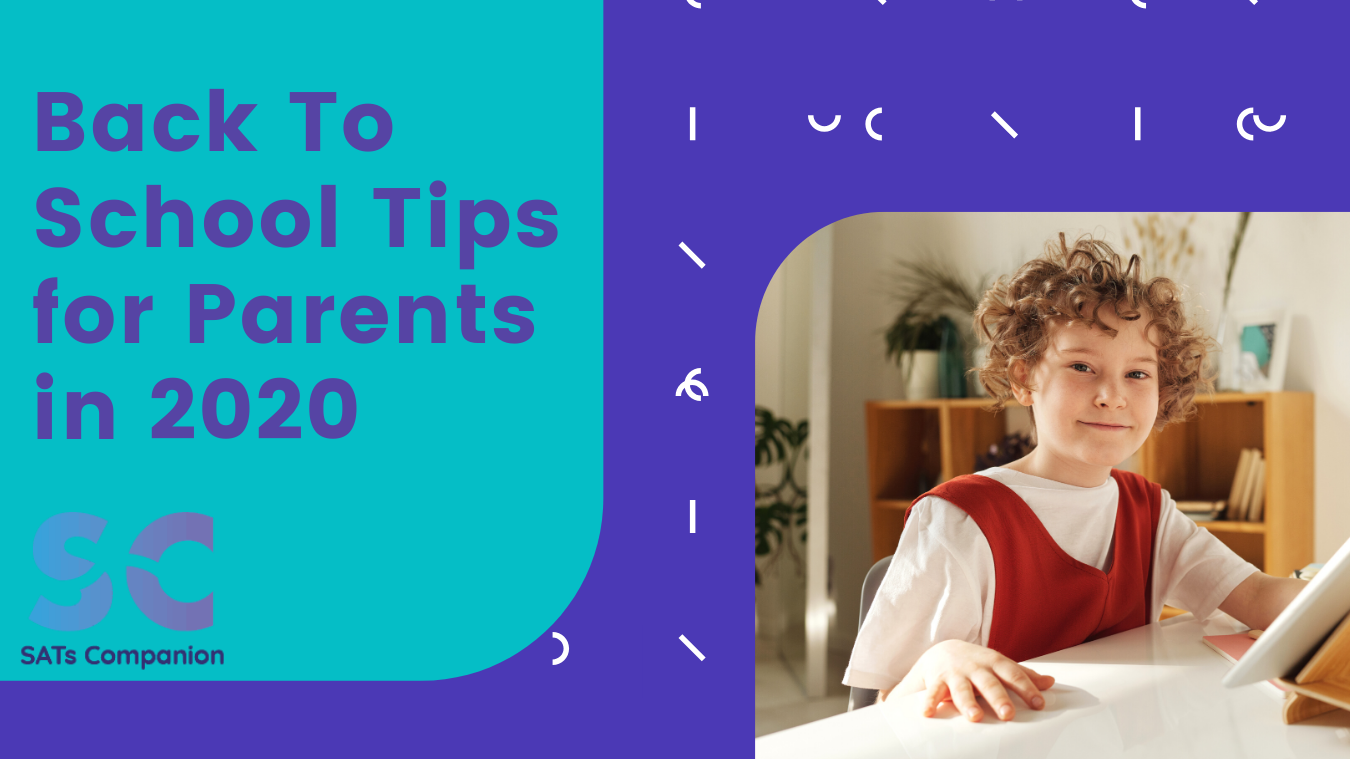Going back to school in 2020 can pose various challenges for children as well as their parents and teachers. Many parents are naturally concerned about returning back to school after an extended period away.
For people in Year 6, the SATs may be on your mind. Figuring out ways to work together in order to keep everyone safe and motivated to learn will require work by everyone involved and we at SATs Companion hope the following useful tips will make this process easier.
- Identify the Areas of Study
The Year 6 curriculum is made up of new topics and also builds on areas of the curriculum covered from Year 3 to Year 5. Finding and pinpointing the areas of the curriculum that your child may need support in, is the first step. As a parent, time management of your child’s learning may be of great importance and it makes sense to focus all your efforts on the material that is relevant to KS2. This could be through finding templates, example questions or recapping topics. Knowing this will help you tailor your child’s learning experience and build up confidence in Year 6.

- Practice Makes Perfect
It’s an old saying, but a true one. The material examined at Year 6 for KS2 may seem difficult to your child as it will examine English and Maths knowledge from Year 3 up to Year 6. It may also seem strange as the curriculum changes and some terminology is highly technical. From fronted adverbials to subordinating conjunctions, there is a great deal of new material to learn. Fortunately, there are plenty of free and paid services online, which provide a plethora of practice examples and further help to assist and prepare your child for the assessments and beyond. Here at SATs Companion, our resources are specifically tailored for parents who wish to help their children with KS2, which can be found here https://satscompanion.com/parent/

- Make It Fun
Constant practice is certainly helpful, but often not as fun and although “study hard, play hard” may be true in some cases, we don’t believe both activities are mutually exclusive. You can either get creative and invent your own games and challenges related to KS2 or visit online guides that are made with fun in mind. We recommend BBC Bitesize as they have plenty of fun resources that can be useful in making studying niche areas of a topic that much more fun, which you can check out here https://www.bbc.co.uk/bitesize/subjects/zv48q6f

- Create a Schedule
An organised schedule can be a great way to structure your child’s time. With the school closures, your child may need to catch up on some topics. A timetable with different subjects and specific areas can make studying seem less tedious by breaking time slots into chunks of small problems to be solved. 20 – 30 minutes of practice three times a week is great to ensure that any gaps in knowledge are being filled, whilst at the same time these study sessions won’t prove too burdensome for your child.

- Track Progress
It’s always great to check in with your child’s understanding so that you can target support to the areas and topics that most need them. This can take many forms from casual to formal, but oftentimes a quick read through the material followed by a few key questions on a daily basis should be enough for you as a parent to check in with your child’s progress. You could also use online tools such as SATs Companion which identify all the areas your child is doing well in as well as topics your child needs support in.

- Ask Questions
Even as a parent, don’t be fearful or intimidated to ask questions to both your child and their teachers. Especially with the unusual times we find ourselves in, it’s good to speak to teachers about both academic and wellbeing queries . Teachers may have usual links or tips and these recommendations can be applied to your child if you wish to try them out and are likely to be useful due to the teacher’s experience and credibility.

- Pressure Management
There are plenty of factors both inside and outside of school that can contribute to or directly put pressure on your child. 2020 is has been particularly difficult due to COVID-19 and the school closures. Combine that with entering Year 6, which can feel intimidating to some due to the English and Maths SATs and you have a formula for significantly more pressure than most children are used to.
In order to prevent stress from accumulating at such an early age, It is important to to focus on wellbeing. attention to their emotions to look out for potential mood swings. If your child is anxious, look for Mindfulness techniques which may help to regulate emotions. Overall, getting back into school after the closures requires a group effort.

For further support from us regarding more help with KS2 English and Maths, please visit our website at https://satscompanion.com/ or visit our social media pages for more information:
YouTube –




Leave A Comment
You must be logged in to post a comment.